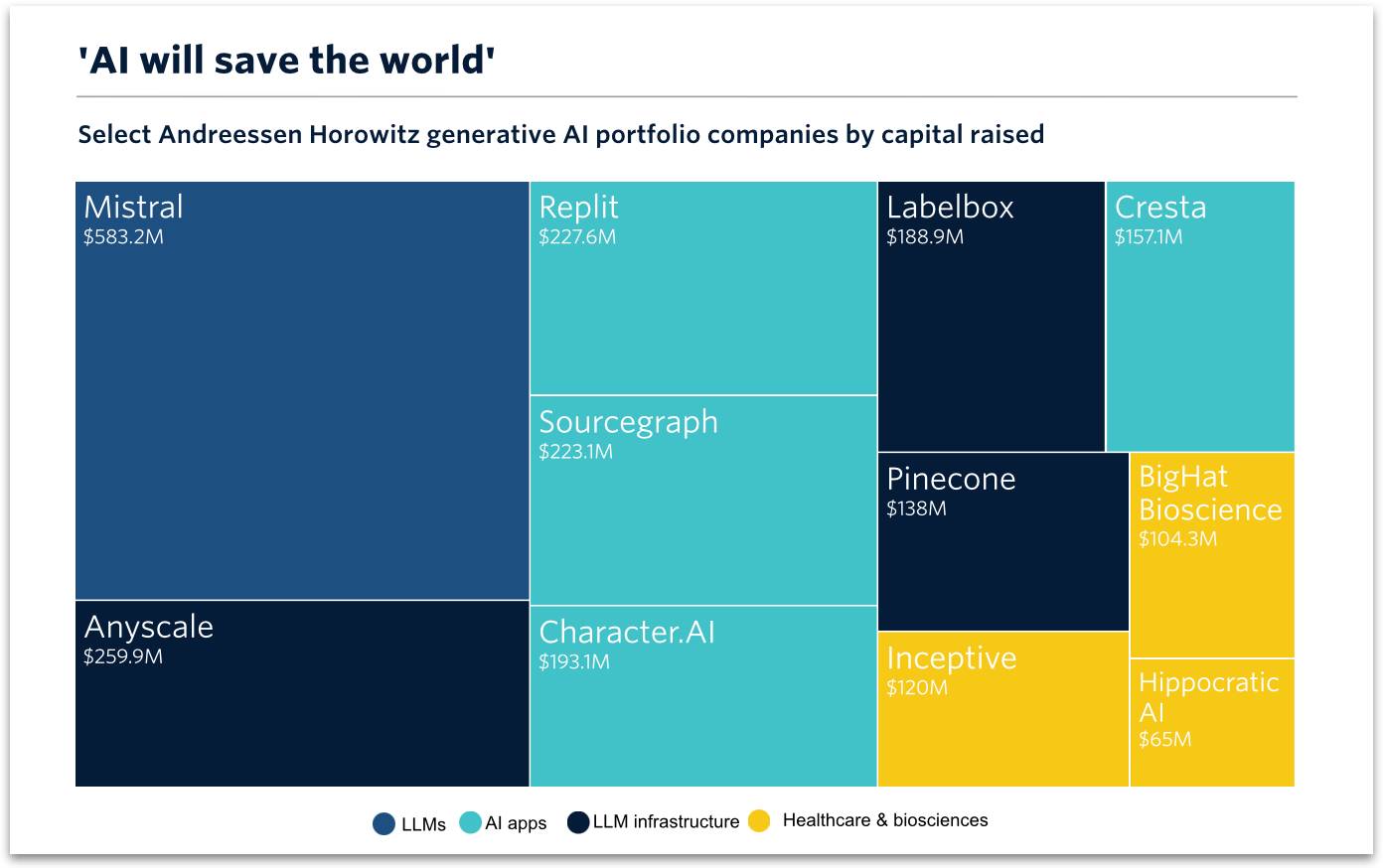Can the Big Studios reinvent themselves?

The Incredibly Shrinking Hollywood
Media heiress Shari Redstone is in talks to sell a controlling stake in National Amusements, a sprawling entertainment empire that includes Paramount, the second-oldest of the ‘Big Five’ film and TV studios, as well as CBS and MTV—an ownership stake she had gallantly fought to keep control of back in 2016. Along the way, Ms. Redstone successfully facilitated the 2019 $12 billion merger deal between CBS and Viacom.
When one looks at Paramount’s stock chart in retrospect, 2016 would have been a pretty good time to sell. Other than at the height of the November ’21 spike, the PARA stock has declined 72% in the last ten years. But here we are in 2023, and it is probably a good time to sell. While Content will always be King, the original content creators, and producers are gaining more financial, marketing, and distribution power, and the roles of Studios are diminishing and groping for new revenue models.

The rumored leading buyer prospect is Skydance, one of Hollywood’s top independent studios, led by David Ellison, the son of Oracle founder Larry Ellison, who is also the world’s fifth richest man. Paramount Global’s market cap is about $11 billion, but it has $14 billion of net debt. Skydance was valued at $4 billion in fundraising last year. Its backers include KKR, Tencent, Redbird Capital, and the Ellison family.
Like the other Big Studios, Paramount is suffering from consumer cord-cutting and the loss of advertising that comes with it, and its Paramount+ streaming business is growing but still losing millions.
David Ellison’s Skydance portfolio cuts across blockbuster films (Star Trek, Mission: Impossible series, and Top Gun: Maverick,) television (Grace and Frankie and Tom Clancy’s Jack Ryan series), animation (Luck and Spellbound), and innovative gaming experiences (VR games Archangel and its sequel, Archangel: Hellfire.)
Back in 1994, Larry Ellison saw a different vision of the ‘the information superhighway’ than the Internet. It involved a two-way cable TV set up in the home that he and his companies invested handsomely into, only to find out that the interactive consumer highway already existed—it was called the Internet. (See Flashback Interview below). David Ellison is producing great content; however, it remains to be seen if he can create a studio model that can keep pace with Web3 disruption and grow or if he is driving down the wrong highway.
Elon vs. ‘Eiger’ Round 2
After basically telling Disney boss Bib Iger to F*ck off at New York Times DealBook a few weeks back for withholding advertising on X, Elon is now Xing that ‘He should be fired immediately. Walt Disney is turning in his grave over what Bob has done to his company.’
We suspect Walt Disney is turning over in his grave for many of the missteps of the no longer-so-Magic Kingdom since his departure. Elon was, of course, happy to amplify another of the Kingdom’s disconnects exposed recently. “Bob Eiger thinks it’s cool to advertise next to child exploitation material. Real stand-up guy,” Elon posted, misspelling Iger’s name. Elon was referring to the fact that Disney continues to advertise with Facebook in spite of being sued by over 40 states for “not [being] safe spaces for children but rather prime locations for predators to trade child pornography and solicit minors for sex.”
Disney pulled its advertising from X last month after Elon endorsed what many interpreted as an antisemitic post on the platform. He later apologized for the comment.
Google Schmoogle
A federal jury in San Francisco found that Google’s mobile Android store engaged in anticompetitive conduct, siding with Fortnite maker Epic Games that may jeopardize billions in Google revenues. Google was found to have abused its market dominance by requiring app developers to use Google’s billing system and pay a 30% transaction fee for in-app sales and also for making side deals with big developers like Spotify, Activision, and Nintendo for lower fees.

‘The dominoes are going to start falling here,’ predicted Epic CEO Tim Sweeney after the verdict. ‘The end of 30% is in sight,’ he says. Epic lost a similar case against Apple in 2021 but is appealing the decision. Apple’s app store generates $200B a year.
The case reflects a growing mistrust of big tech and the perception that it has gained too much power. The undercurrent of Web3 is to bring down the wall gardens built during Web2 and move back to the original dream of open internet standards and peer-to-peer computing. ‘This verdict just knocked a big hole in the garden wall,’ says Mr. Sweeney.
Our view is the government is way late in the game here. Let Google and Apple have their 30 percent while they can still get it. Just as the market is starting to squeeze streamers like Netflix and Spotify, Web3 entrepreneurs are lining up to disintermediate all cloud-based apps, and the Apple and Android stores will be no exception. The Epic Games founder is right—the end of 30 percent mobile app toll gates is coming to an end.

“Mama says, Google Schmoogle, where is your Ph.D?”
—Google founder Sergey Brin was given eight words by host Joe Schoendorf to describe himself at the underground ‘Nerds Dinner’ at the annual World Economic Forum back in the 1990s when Google was still a private company.
Meanwhile, back at the Googleplex
News publishers are shivering in their Santa boots that Google’s AI Search Tool (‘Genesis’), currently being tested on 10 million users, will not be the ‘helpmate for journalists’ that Google tried to sell it to the executives at The New York Times, The Washington Post and News Corp. Instead, the Corporate Media Heads fear it will be a traffic-killing nightmare for their sites—which it will.
In another industry development, OpenAI cut a licensing deal with German publisher Axel Springer for content access to its titles such as Politico, Bild, and Business Insider. Media group execs are focused on ensuring that, unlike in the early years of the internet, Big Tech fairly compensates their properties for the content they scrape.
Our view is that any tool that scrapes the web will always be as reliable as what’s on the web, which, as we all know, is very hit-and-miss. The most significant risk is that AI tools will make journalists even lazier. Cryptonite prides itself as a real-intelligence (RI) bot curating and commenting on the news and events most relevant for the modern sophisticate—requiring nuance, refined cultural and business instincts, and a little bit of Silicon Valley swag. Get behind us AI bots !
Spotify sets its site on HiFi
Spotify is booting its CFO, and the streaming giant announced a 17% (1,500 jobs) workforce to reverse its mass hiring binge during the COVID years when people were forbidden to leave their homes. The Stockholm, Sweden-based company also made a $1 billion bet on podcasting to bring in popular personalities such as Joe Rogan (his $200 million deal is up at the end of 2024), Alex Cooper, and Emma Chamberlain, while others were very expensive flops including the Duchess of Sussex, Meegan Markle’s podcast, Archetypes, which Spotify paid over $18 million for, but was canceled after a few episodes.
“Spotify is taking action to rightsize our costs to bring our spending more in line with market expectations while also funding the significant growth opportunities we continue to identify. Being focused and lean is not just an option but a necessity.’
—Daniel Ek, Spotify’s 40-year-old billionaire boss
It is anticipated that Spotify will roll out a Supremium subscription option in the coming months, giving listeners access to a 'sound capsule' personalized to each user, as well as ‘24-bit lossless audio'— fashionably known as HiFi.
Did you know?
(Overheard on the streets of the global Silicon Valley. Got any hot insider tips? Email us editor@cryptoniteventures.com)
Billionaire Boys Club
Looks like Elon is building a new primary and secondary science and technology school in Austin, Texas, and has committed $100M to the project via his charity, The Foundation. The schools will be ‘dedicated to education at the highest levels’ and have merit-based admissions and financial aid available.
“College is basically for fun and to prove that you can do your chores, but not for learning. I don’t consider going to college evidence of exceptional ability. In fact, ideally, you drop out. You don’t need college to learn stuff. Did Shakespeare go to college? Probably not.’
—Elon Musk in 2020.
According to a 2023 Gallup poll, only 36% of Americans have confidence in colleges and universities, sharply lower than in two prior readings in 2015 (57%) and 2018 (48%).
David Mills, the defense lawyer for former Billionaire Boys Club member Sam Bankman-Fried, says, ‘He (SBF) is the worst person I’ve ever seen do a cross-examination.’ Mr. Mills not only lost the case but also lost his close friendship with SBF’s parents—all three of whom are associated with Stanford University.

‘I think he (SBF) is innocent because he didn’t form the intent to do anything wrong,’ Mr. Mills says, but he does not think a better performance would have prevented the guilty verdict. Mr. Mills says powerful testimony by SBF’s former FTX execs made the case unwinnable for the defense.
VC Whispers
School endowments have been almost universally burned by the venture slowdown this year, and new commitments to VC funds have slowed down as a result. Climate-tech VC Congruent Ventures is the exception, having just secured endowment money from Northwestern University and the University of California to close its over-subscribed $275M third eco fund.

Congruent's fund is one of the three largest VC funds dedicated to climate investments to close a new fund in 2023, behind At One Ventures's $375 million Fund II and LG Technology's $309 million Energy Transition Fund.
AI Tracker
‘Nudify’ apps that use AI to undress women are the rage and part of what is fueling the rise in ‘deepfake pornography.’ AI creates images of superior quality, and the apps to make them are open source and free.
VC powerhouse A16z’s investment mantra is ‘AI will save the world,’ which has manifested into betting across the entire generative AI value chain, with more than 20 AI company investments—including taking a stake in OpenAI’s $300 million round last April. The firm’s latest AI cash infusion was a $415 million Series A investment into Mistral AI, a16z’s first bet on an open-source large language model creator.
“Opensource AI should be allowed to proliferate and compete freely with both big AI companies and startups. There should be no regulatory barriers to open source whatsoever.”
—Marc Andreessen, cofounder, Andreessen Horowitz, A16z
The Science of Life
Friends Matthew Perry’s death by Ketamine/drowning has pushed the pause button on the anesthetic’s prescription rage—a drug that upstart clinics and online providers boast as the cure for treatment-resistant depression. Ketamine treatments, approved by the FDA in 2019, require tracking adverse events, and it is not approved for at-home use.
Billionaires Jeff Bezos (Altos Labs), Peter Thiel (Unity Technology), and OpenAI’s Sam Altman (Retro Biosciences) are investing in companies trying to reverse aging at the cellular level. Sergey Brin and Sean Parker are combating age-related conditions, from cancer to Parkinson’s disease. Today, roughly one in six Americans is 65 or older, and their share continues to rise. The life science sector is booming with innovation.

GoingGreen
Dimitra has developed a blockchain deforestation platform that uses satellite and machine learning technology to track and certify that cocoa farmers have met deforestation standards and may continue exporting beans into the European Union—the world’s largest chocolate market. Côte d’Ivoire, Ghana, and Cameroon are major suppliers of cocoa to the EU market, valued at €4.6 billion in 2021.
Best on the Block
Pro-Bitcoin Javier Milei took the helm as Argentina’s president on Sunday amid a severe economic crisis with triple-digit rates of inflation. A libertarian who wants to dollarize the country’s economy won about 56% of the vote versus just over 44% in the runoff in Latin America’s third most populous nation. Milei sees Bitcoin and digital currencies as means to ‘return money to its original creator: the private sector.’

Follow the Crypto
👿👎🏼 says the Boss of the biggest bank in the US
“I’ve always been deeply opposed to crypto, bitcoin, etcetera. The only true use case for it is criminals, drug traffickers, money laundering, and tax avoidance. If I was the government, I’d close it down.”
—JPMorgan Chase CEO Jamie Dimon remarks under questioning from Sen. Elizabeth Warren, D-Mass., during a Senate Banking Committee hearing

SEC approval of exchange-traded spot Bitcoin ETFs has always been the Holy Grail for BTC Heads pushing for the cryptocurrency’s legitimacy. The SEC could never swallow the ETF pill, citing the potential manipulation of the Bitcoin market as the great fear.
In June, Blackrock CEO Larry Fink seemingly came out of nowhere and put his Wall Street weight, as the largest asset manager in the world, behind a Bitcoin ETF by filing an application with the SEC for its iShares Bitcoin Trust.
What is a spot Bitcoin ETF?
The term 'spot' refers to the actual immediate purchase and ownership of the underlying asset, which, in this case, is bitcoin—meaning that the value of a spot bitcoin ETF is directly correlated to the price of bitcoin. Like a physically backed gold ETF, when an investor buys shares of a spot bitcoin ETF, they are essentially buying a portion of the bitcoin held by the fund.
Mr. Fink, who was once a BTC denier, has become one of Bitcoin’s most prominent evangelists, appearing everywhere to sing the altcoin’s virtues. The Bitcoin ETF legal adoption odds have instantly changed. A legit Bitcoin ETF will open the floodgates for billions of dollars worth of institutional assets to flow into the market. The irony here is not lost, of course, that Bitcoin is implicitly anti-institutional, and BlackRock is the biggest money management institution. Conversely, BlackRock’s promise is to provide the best return for their investors, and Larry Fink’s conversion to the sensibility of digital currencies is a Big Deal for his investors and Bitcoin.
“Bitcoin just shows you how much demand for money laundering there is in the world—That’s all it is.”
—Larry Fink in October 2017


Into the Metaverse
Mocaverse has raised $31.88 million, led by Animoca Brands Animoca Brands and including Dapper Labs, Polygon Ventures, Block1, OKX Ventures, and Foresight Ventures. Mocaverse is an Ethereum NFT-based digital identity and loyalty platform that will connect metaverse game worlds, apps, and other Web3 projects.
Space Shots
The China National Space Administration and the Egyptian Space Agency agreed to support a lunar base station on the moon, which is expected to begin operation around 2030. China said in 2021 that it intends to work with Russia on the same project. It has since been seeking support from other nations, which competes with the Artemis Accords, a NASA-backed plan to establish principles for exploration on the moon and elsewhere in space.

The US Space Force’s mysterious, hostile-threat-seeking X-37B unmanned spaceplane is on deck to soar again to ‘new orbital regimes.’ The reusable X-37B will reach these record heights atop a SpaceX Falcon Heavy rocket, the most powerful commercial rocket operational anywhere in the world.
Know Thy Enemy
Russian despot Vladimir Putin, 71, announced he will run for president again in the 2024 rubber stamp election, extending his term in office six more years. Vlad twice amended the constitution so he could theoretically stay in power until his mid-80s.
“As for the prosecution of Trump, for us, in my opinion, it is good because it shows the rottenness of the American political system, which cannot pretend to teach others democracy. Everything that is happening with Trump is the persecution of a political rival for political reasons. That’s what it is. And this is being done in front of the public of the United States and the whole world.”
—Vladimir Putin’s observation at the Eastern Economic Forum gathering in Russia’s Pacific Coast city of Vladivostok.
Thus far, it looks like Taylor Swift’s Eras Tour will be skipping China, but regulators look like they will allow Ms. Swift’s Eras film to be released on the Mainland. The pop star appeals to many young Chinese women who admire her qualities of independence and archetype for a wholesome Western female beauty. Her music is also a switch-up from the K-pop and Mandarin pop dominating China's charts.

Chinese People's Liberation Army (PLA) hackers infiltrated critical infrastructure in the US, including a Hawaiian water utility, a West Coast port, and oil and gas pipelines. China's goal is to deter the US from meddling in a potential Chinese invasion of Taiwan or to sow chaos in the event of conflict, says Brandon Wales, executive director of the Cybersecurity and Infrastructure Security Agency.
Gen Z
The 4.6 million Australia Gen Zers (a.k.a. Zoomers ages 11 to 26) that represent one-fifth of the Australian voters have launched their political party, which includes no taxes for anyone under 25. 'The Boomers have failed us,’ says their party promo material. So now the Boomers will pay—literally.
Pura Vida (pure life)
Prolonged sitting in a chair Western-style, with no leg or thigh engagement, is counter-productive. A new study says a minute of half-squats every 20 minutes improves blood flow to the brain and, with it, cognitive functioning and concentration.
A long-term Singapore study shows that drinking coffee, black tea, or green tea at midlife significantly reduces the likelihood of physical frailty in late life. Coffee and tea contain rich bioactive polyphenols with antioxidant and anti-inflammatory properties that reduce the risks for diseases that increase frailty, such as diabetes, cardiovascular diseases, obesity, and neurodegenerative diseases.
The Cryptonite Founder's Pitch Program
Founder’s Pitch Program If you are a hustling innovation entrepreneur ready to pitch your story and boost your funding and branding efforts, it might be time for you to do a Cryptonite Founder’s Pitch. Our job is to bring your pitch alive and put it in front of the investors and influencers who matter. The f…
Top AI & ML private companies nominated to the Cryptonite 300 competition for 2024
Introducing the best private companies in AI Welcome to the kick-off of the 2024 Cryptonite 300 (C300) competition. Eligible companies are generally venture capital-backed enterprises driven by Web3 innovation, including artificial intelligence (AI) and machine learning (ML), blockchain and crypto, and the metaverse and virtual reality (VR).
Top Blockchain & Crypto companies nominated to the Cryptonite 300 competition for 2024
Introducing the best private companies in blockchain and crypto The highly exaggerated $3 trillion cryptocurrency market cap in November 2021 has appropriately been chopped back to $1 trillion, and our previously predicted widespread consolidation of coins
Flashback Interview
Oracle founder Larry Ellison circa 1994—How the world's 5th richest man was late to the Internet
By Anthony B. Perkins
From the June 1994 issue of Red Herring
Building the multimedia library
Learn why Larry Ellison believed the impact of the two-way cable interactive network that never happened would have the same potential to enhance our lives as the Library of Alexandria stimulated the intellectual development and prosperity of the Greek and Roman civilizations. Right idea, wrong highway.
Perkins: How long do you think it will take before we have the two-way information highway into the home?
Ellison: Well, Bell Atlantic is planning to have a million homes online by the end of 1995. By the end of 1997 or 1998, there will be tens of millions of households hooked into the interactive highway. It will be a huge business long before this decade is over.
Perkins: What are the biggest challenges facing the builders of the information highway?
Ellison: At this stage, I think that the obstacles are much more regulatory than technical. We believe that we will be delivering the stream servers at a cost of a couple of hundred dollars per active stream, which includes both hardware and software, by the first quarter of next year. And set-top boxes will sell for around three hundred dollars. So the total capital cost for a working television set -- where the stream server is talking to a set-top box -- will be around five hundred dollars. That's about the cost of a decent-quality VCR today. The capital cost of building interactive information services and delivering those services to the household is not that great.




















